If Kali Is the Goddess of Power, Why Do We Shame Dark Skin?
Noopur Bhatt | Apr 16, 2025, 08:00 IST

( Image credit : Pixabay )
We bow before Goddess Kali’s dark skin in temples, but judge women for the same in real life. Why is divinity accepted in a deity, but denied to daughters, sisters, and mothers? This article will make you question deep-rooted beauty biases and celebrate what society taught us to hide: the unapologetic, powerful beauty of dark skin.
We worship before Goddess Kali, who is black-skinned, wild-haired, fierce-eyed, and magnificent, in temples. We refer to her as "Ma," the all-powerful mother who frees and protects us. However, when a girl with dark skin is born, we in India groan. We wonder if she will have trouble finding a partner. For fairness, we recommend home remedies. Unknowingly, we transmit guilt rather than strength.
How did our society come to revere a black deity while doubting the value of a black girl?
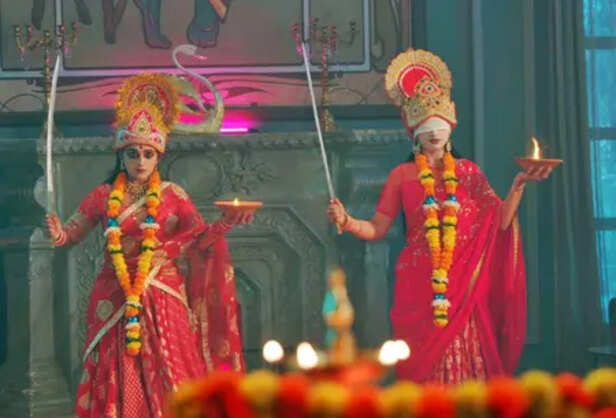
Kali is not just black. She decides to identify as Black. Infinity—the womb of time, the unknown, the uncontrollable—is symbolized by her color. She is the power that shreds ignorance and ego, the killer of illusions. The statement "I am beyond your shallow definitions of beauty" is contained in her darkness.
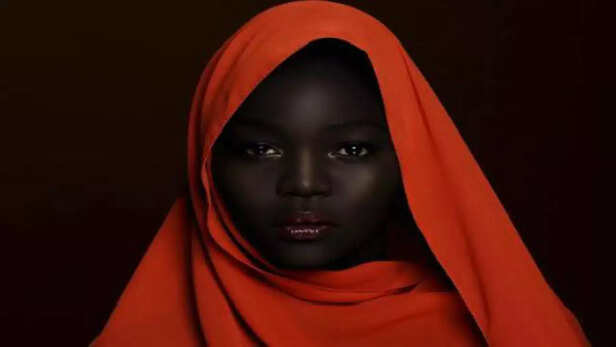
Dark-skinned females face harmful remarks masquerading as care from an early age
She’s pretty but dark."
"Try this ubtan, it might lighten her."
"Don't let her play in the sun too much
These are not superficial messages. They infiltrate our bones. They teach a child that she is not enough as she is. that a shade is putting her worth, connections, and future in jeopardy. And where self-love ought to blossom, guilt gradually takes root.

Even though colonial control is over, its effects may still be seen in our mirrors and in our thoughts. A deeply rooted color hierarchy was introduced by the British. Fairness entailed dominance, authority, and superiority. And that poison crept into our music, movies, wedding advertisements, and even marriage-related websites over the course of generations. Bollywood heroes chase fair heroines. Brides are expected to “glow.” And fairness creams rake in billions. The message is clear and cruel: to be light is to be right. But isn’t it time we asked—right for whom? 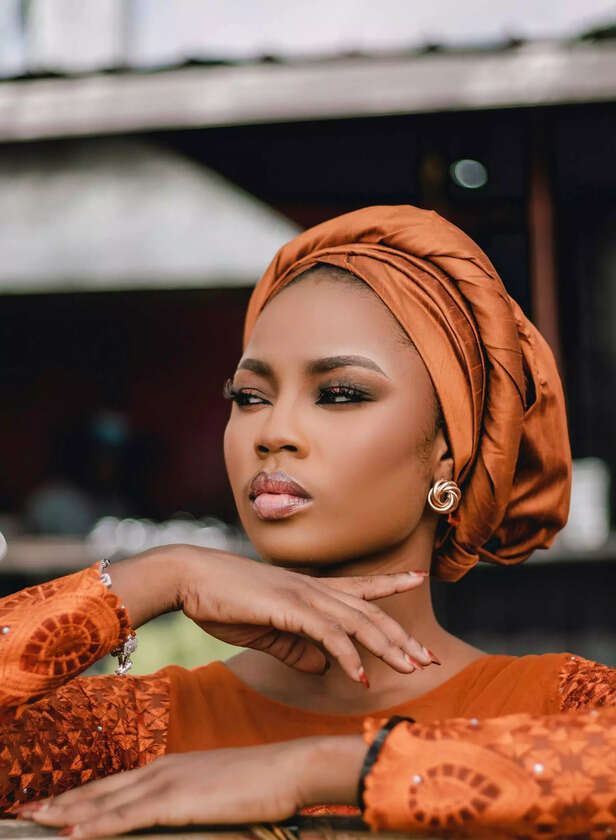
Colorism's harm extends beyond emotions. It transforms lives. Dark-skinned women frequently experience discrimination in relationships, in school, and at job interviews. They are instructed to "modify their expectations." Because society mistakenly equates beauty with fairness—and fairness with worth—even their knowledge or ability is called into doubt. Imagine living with the burden of constantly being "less than" simply because you were born with melanin.
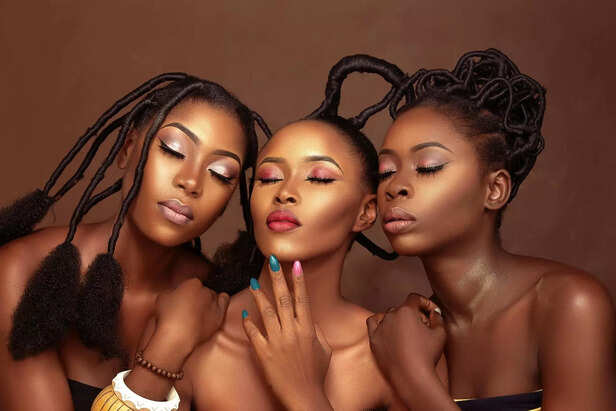
At home, the revolution starts. Our girls need to learn that beauty is not something to strive for. They already have it on hand. Their skin is a poem penned by their ancestors rather than a defect that needs to be addressed. We can narrate to them about Kali, not only as a goddess but also as a representation of unafraid beauty Let’s replace “Don’t go in the sun” with “Shine in your skin.”
Let’s swap fairness creams for confidence creams—metaphorically and literally.
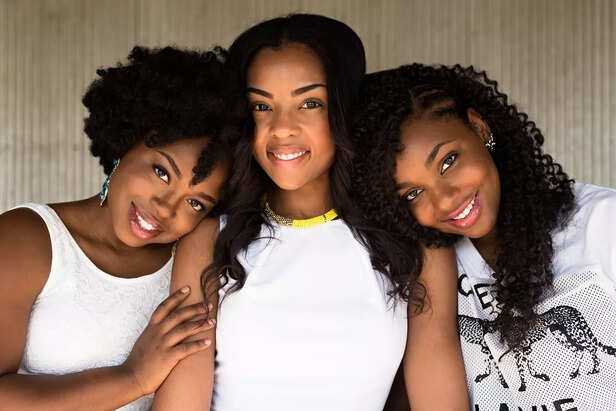
Dark-skinned females cease shrinking when they see women like them in leadership roles, movies, and magazines. They begin to bloom.
Melanin-celebrating beauty influencers and advertisements like "18 Shades of Black" have spurred much-needed discussions. However, we require more—more magazine covers, more screen time, and more striking lipstick colors for people with darker complexion tones. Being visible is not vanity. It's confirmation.

It takes time to gain confidence. However, each time a lady with dark skin enters a room with her head held high, she undermines decades of discrimination. In a society that told you to hide, wearing bright colors, dancing in the sun, and showing up without apology are all examples of disobedience. Your skin is not your silence. It can be your loudest statement.

Keep Kali in mind whenever you feel condemned. She is lovely, black, and unkempt. She roars instead of smiling nicely. She disrupts stereotypes rather than conforms to them. Kali tells us that power is a presence rather than a hue. She challenges us to embrace our inner fire and see past outward manifestations. Women with darker complexion tones are not flawed. They are resilient, brilliant, and revolutionary—born of the storm.
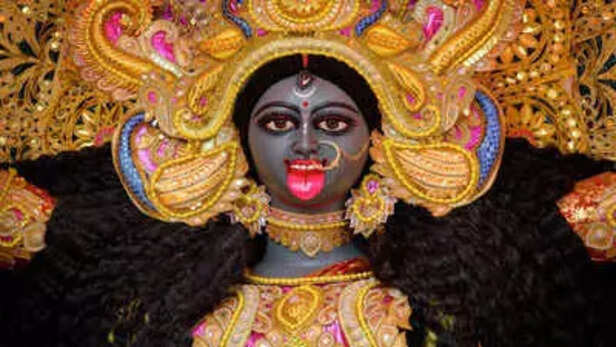
Imagine a society in which women with darker skin tones are not asked to lighten, bleach, or conceal. where there are no conditions attached to compliments. where "seeking confidence and compassion," rather than "fair and lovely," appears in matrimonial Is loving what we already worship in temples really so difficult in real life? The contradiction is not divine; rather, it is harmful when we worship Kali while disparaging our own daughters. We have to be the first to change. advertisements.
The dark skin of Goddess Kali is a cultural call to action as well as a religious emblem. Her unapologetically brazen appearance serves as a reminder that inner strength, not external conformity, is the source of true power. May all dark-skinned women never forget that they are a reflection of Kali in a society that still strives to eradicate originality. fierce. Free. heavenly. Let's bring up a generation that reveres not only goddesses but also the divine nature of all women, regardless of their color.
Explore the latest trends and tips in Health & Fitness, Travel, Life Hacks, Fashion & Beauty, and Relationships at Times Life!
How did our society come to revere a black deity while doubting the value of a black girl?
1. Kali’s Black Skin: Symbol of Power, Not Flaw

Kali Khappar dance
( Image credit : IANS )
Kali is not just black. She decides to identify as Black. Infinity—the womb of time, the unknown, the uncontrollable—is symbolized by her color. She is the power that shreds ignorance and ego, the killer of illusions. The statement "I am beyond your shallow definitions of beauty" is contained in her darkness.
2. The Silent Pain of Growing Up Dark-Skinned in India

Dark skin
( Image credit : Pixabay )
Dark-skinned females face harmful remarks masquerading as care from an early age
She’s pretty but dark."
"Try this ubtan, it might lighten her."
"Don't let her play in the sun too much
These are not superficial messages. They infiltrate our bones. They teach a child that she is not enough as she is. that a shade is putting her worth, connections, and future in jeopardy. And where self-love ought to blossom, guilt gradually takes root.
3. The Obsession with Fairness: Where Did It Come From?

devi
( Image credit : Times Life Bureau )
Even though colonial control is over, its effects may still be seen in our mirrors and in our thoughts. A deeply rooted color hierarchy was introduced by the British. Fairness entailed dominance, authority, and superiority. And that poison crept into our music, movies, wedding advertisements, and even marriage-related websites over the course of generations. Bollywood heroes chase fair heroines. Brides are expected to “glow.” And fairness creams rake in billions. The message is clear and cruel: to be light is to be right. But isn’t it time we asked—right for whom?
4. The Cost of Colorism: Self-Esteem, Love, and Opportunity

Dark-skinned women
( Image credit : Pixabay )
Colorism's harm extends beyond emotions. It transforms lives. Dark-skinned women frequently experience discrimination in relationships, in school, and at job interviews. They are instructed to "modify their expectations." Because society mistakenly equates beauty with fairness—and fairness with worth—even their knowledge or ability is called into doubt. Imagine living with the burden of constantly being "less than" simply because you were born with melanin.
5. Rewriting Beauty Standards: It Starts with What We Tell Our Daughters

Beauty Standards
( Image credit : Pixabay )
At home, the revolution starts. Our girls need to learn that beauty is not something to strive for. They already have it on hand. Their skin is a poem penned by their ancestors rather than a defect that needs to be addressed. We can narrate to them about Kali, not only as a goddess but also as a representation of unafraid beauty Let’s replace “Don’t go in the sun” with “Shine in your skin.”
Let’s swap fairness creams for confidence creams—metaphorically and literally.
6. Representation Matters: Seeing Is Believing

Dark-skinned girls
( Image credit : Pixabay )
Dark-skinned females cease shrinking when they see women like them in leadership roles, movies, and magazines. They begin to bloom.
Melanin-celebrating beauty influencers and advertisements like "18 Shades of Black" have spurred much-needed discussions. However, we require more—more magazine covers, more screen time, and more striking lipstick colors for people with darker complexion tones. Being visible is not vanity. It's confirmation.
7. The Power of Self-Expression: Owning Your Narrative

WOMEN
( Image credit : Pixabay )
It takes time to gain confidence. However, each time a lady with dark skin enters a room with her head held high, she undermines decades of discrimination. In a society that told you to hide, wearing bright colors, dancing in the sun, and showing up without apology are all examples of disobedience. Your skin is not your silence. It can be your loudest statement.
8. From Shame to Strength: Kali as Our Role Model

Maa Kali
( Image credit : Times Life Bureau )
Keep Kali in mind whenever you feel condemned. She is lovely, black, and unkempt. She roars instead of smiling nicely. She disrupts stereotypes rather than conforms to them. Kali tells us that power is a presence rather than a hue. She challenges us to embrace our inner fire and see past outward manifestations. Women with darker complexion tones are not flawed. They are resilient, brilliant, and revolutionary—born of the storm.
9. What If We Celebrated Real Women Like We Worship Kali?

devi maa
( Image credit : Times Life Bureau )
Imagine a society in which women with darker skin tones are not asked to lighten, bleach, or conceal. where there are no conditions attached to compliments. where "seeking confidence and compassion," rather than "fair and lovely," appears in matrimonial Is loving what we already worship in temples really so difficult in real life? The contradiction is not divine; rather, it is harmful when we worship Kali while disparaging our own daughters. We have to be the first to change. advertisements.
Goddess Maa Kali Lives in You
Explore the latest trends and tips in Health & Fitness, Travel, Life Hacks, Fashion & Beauty, and Relationships at Times Life!
